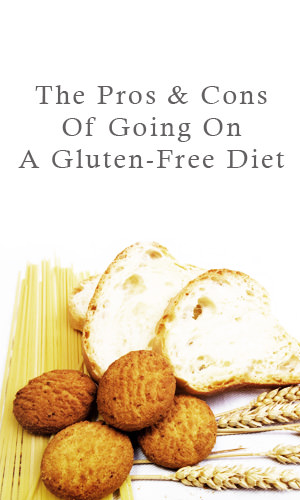
The Pros And Cons Of Going On A Gluten-Free Diet
Posted on 23 Oct, 2021
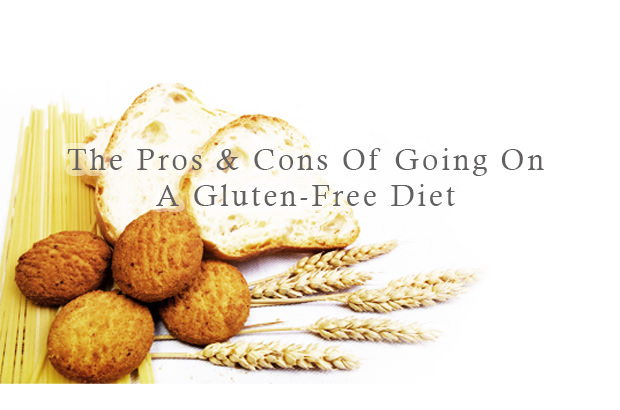
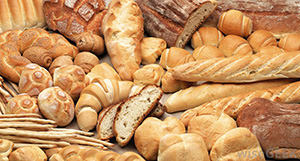 What Is Gluten?
What Is Gluten?
Gluten is the protein found in wheat, rye, and barley, but it’s also found in foods like ice cream and ketchup. Gluten-free diets are typically followed by people suffering from a gluten sensitivity or celiac disease, a condition that causes a negative reaction to gluten and results in damage to the intestines. This damage makes it difficult for the body to absorb necessary nutrients and leads to vitamin and mineral deficiencies.
In recent years, gluten-free diets have become part of the weight loss fad. However, a gluten-free diet isn’t necessarily healthier and can sometimes lead to weight gain. Before you hop onto the gluten-free bandwagon, here a list of pros and cons you should consider.


PROS OF A GLUTEN-FREE DIET
No Inflammation
If you have a gluten intolerance or sensitivity, you may have inflammation or damage to the intestinal tract. Eating gluten free can help reverse this damage and inflammation.
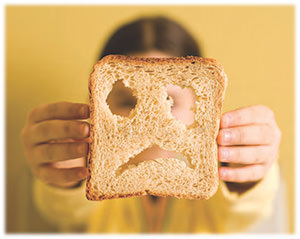 Fewer Processed Foods
Fewer Processed Foods
Going gluten-free encourages label reading and more awareness of food. By default, you'll end up eating far less processed foods and ingesting fewer chemicals and preservatives found in processed foods.
More Healthy Grains
Going gluten free also ensures that you'll get good carbs rather than refined carbs. You'll introduce higher quality grains like quinoa into your diet.
You May Lose Weight
If you replace your glutenous grains with whole grains like millet and amaranth, complex carbohydrates like fruit and veggies and other whole foods foods like meat, legumes and dairy, you may lose weight on the gluten-free diet. But If you follow this program by eating gluten-free crackers, cookies and other packaged foods, you may gain weight.
Helps Control And Prevent Diabetes
The gluten-free diet can help control and prevent diabetes. However, diabetics should be careful to avoid gluten-free processed foods, many of which are highly caloric and have a high glycemic index. About 10 percent of people with Type 1 diabetes also have celiac disease.
CONS OF A GLUTEN-FREE DIET
Less Folate
One of the biggest cons associated with a gluten free diet is the lack of certain important nutrients. The one that deserves special mention is folate because most gluten free foods don't have the amount of folate you need.
 Less Convenient And Longer Preparation Time
Less Convenient And Longer Preparation Time
Preparing gluten free foods takes a longer amount of time as you’ll always have to be mindful of what goes into your meal.
The gluten-free lifestyle is getting easier every day as the diet becomes a mainstream option at restaurants and supermarkets and is accepted in American food culture.
Lack Of Fibre
Getting enough fibre can be a challenge on this diet. Lack of fibre can lead to digestive issues. By ditching things like wheat, you’ll lose fibre that you’ll need to replace through other sources such as beans, veggies, gluten-free whole grains such as popcorn and buckwheat, or a fibre supplement.
Carb Deficiency
Because of reduced carbohydrate intake you may end up losing weight not because you're getting healthier, but because you're not getting what you need to sustain your body. And that is a bad thing.
Weight Gain
There is the possibility of weight gain from eating gluten-free products, which sometimes contain higher levels of fat and sugar.
More Expensive
If you opt for gluten-free packaged goods, it’s moderately pricey. However, products that are naturally gluten-free such as fruits, vegetables, meat, fish, nuts, eggs and dairy should keep the grocery bill reasonable, and you’ll cut out the cost of convenience foods.
Final Word
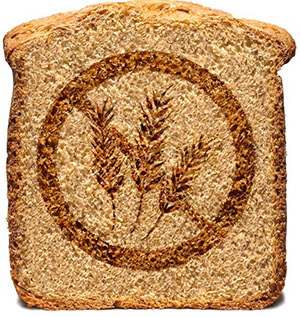 Gluten is only harmful if you have a gluten allergy and/or celiac disease. There are some people who report feeling better on a gluten-free diet without having celiac disease. Possible reasons for this include a placebo effect, elimination of another food component along with gluten or a real intolerance of gluten, other than celiac disease.
Gluten is only harmful if you have a gluten allergy and/or celiac disease. There are some people who report feeling better on a gluten-free diet without having celiac disease. Possible reasons for this include a placebo effect, elimination of another food component along with gluten or a real intolerance of gluten, other than celiac disease.
Cutting out a major food element can lead to nutrition deficiencies, so it’s important that people eliminating gluten from their diet get fibre and other critical nutrients from other sources and don’t replace gluten with unhealthy foods.
If you think you have a gluten sensitivity or celiac disease, see your doctor. Don’t go on a gluten-free diet without checking with your doctor first. Going gluten-free and then getting checked by your doctor can affect the results of the blood test used to diagnose celiac disease.

by Danielle Walker

by April Peveteaux

by Nicole Hunn

by Elisabeth Hasselbeck

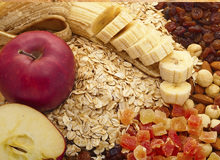 Different Types Of Fibre And Their Health Benefits
Different Types Of Fibre And Their Health Benefits Eating Tips To Increase Your Productivity
Eating Tips To Increase Your Productivity How to Bring Any Almost-Spoiled Produce Back to Life
How to Bring Any Almost-Spoiled Produce Back to Life How To Build Any Salad Like A Boss
How To Build Any Salad Like A Boss










